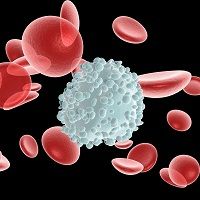Article
White Blood Cells Have Role in Rheumatoid Arthritis
Author(s):
White blood cells may be the cause of rheumatoid arthritis, according to a study from Northwestern Medicine.

Rheumatoid arthritis may develop from a specific type of white blood cell, according to research published in Cell Reports.
Researchers from Northwestern Medicine examined the role of 2 macrophages: classically activated M1s, which encourage inflammation, and M2 macrophages, which repair the inflamed tissue. They also observed the role of macrophages born on the body’s tissue instead of those formed from monocytes in the bloodstream.
“The main culprit is an overactive immune system in patients with rheumatoid arthritis, whose failsafe mechanism has gone awry,” the study’s corresponding author Harris Perlman, PhD, said in a press release. “Macrophages are central to the disease progression. Current therapies that target these cells help induce remission in patients. Unfortunately, very little is known about the genetic makeup of the monocytes that enter the joint during normal growth and during rheumatoid arthritis.”
The researchers found that the healing non-classical monocytes were essential to the rheumatoid arthritis disease initiation and progression. Throughout the course of the disease, however, the cells take on other roles.
In a mouse model, investigators were able to break down the disease into 3 phases: initiation, propagation, and resolution. Both the M1 and M2 macrophages were expressed in the non-classical monocytes. During the disease initiation, the macrophages aided the progression of rheumatoid arthritis by encouraging inflammation and overpowering the anti-inflammatory tissue-resident macrophages. During the disease resolution, the same non-classical monocytes transitioned into roles that initiated tissue repair. The researchers believe this may be a potential target for treatment.
“Therapies that target these macrophages and alter their profile will be extremely beneficial for rheumatoid arthritis patients,” Perlman continued. The investigators hope to determine next if non-classical monocytes that contribute to inflammation and tissue injury are also related to other autoimmune diseases.
Previously, the role of monocytes and macrophages in the progression of rheumatoid arthritis was unclear. Generally, the white blood cells were only understood to attack foreign substances that enter the body and protect the tissue.
The researchers believe their findings are in line with prior studies. For example, a previous study determined that mice models which have decreased levels of the classical monocytes develop an ability to recruit monocytes into the joint. Another study demonstrated mice models of autoimmune kidney injury did not recruit the non-classical monocytes; however, the researchers attribute the short observation period as the reason the recruitment was not observed.




